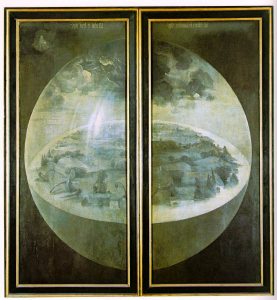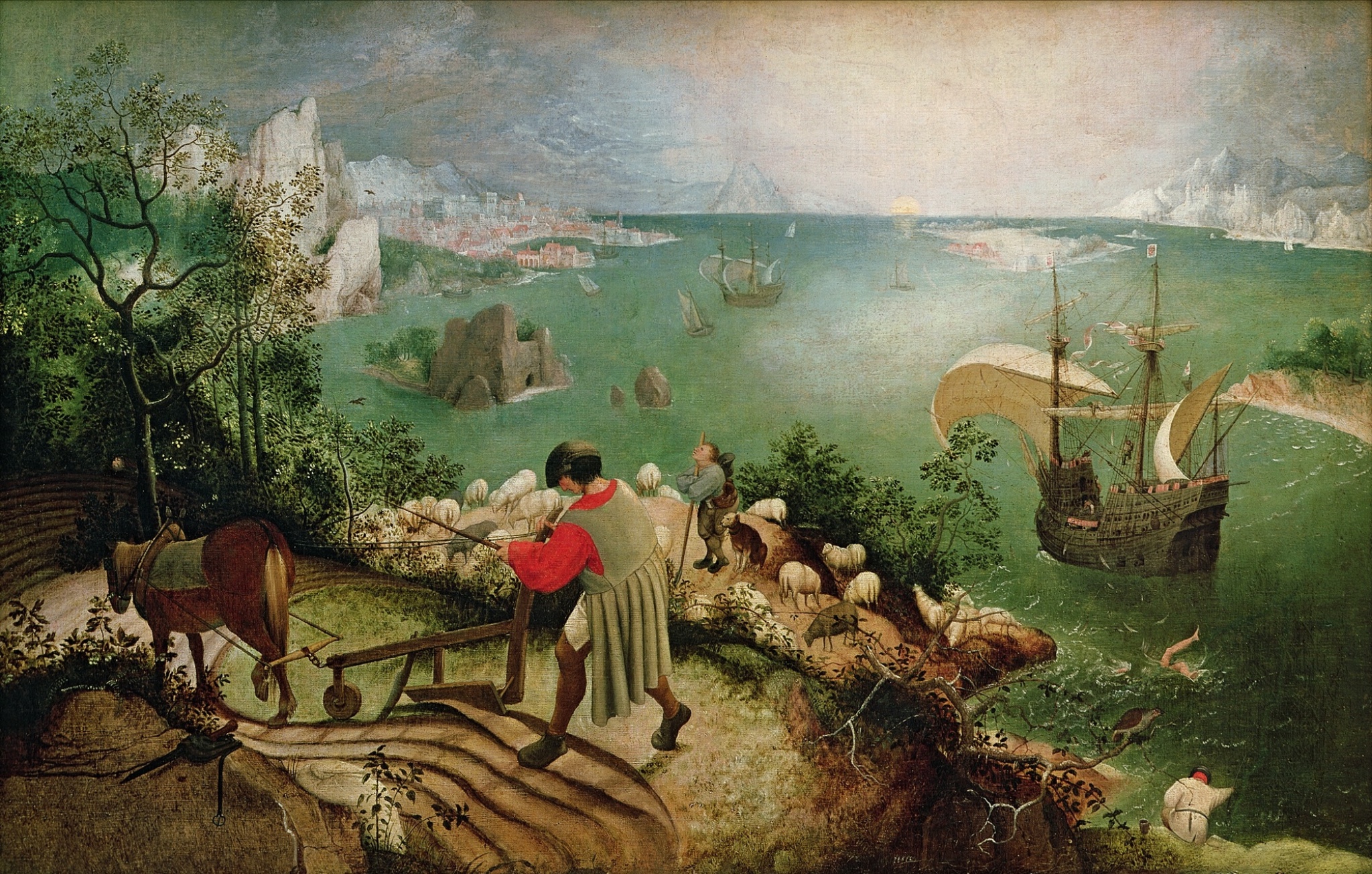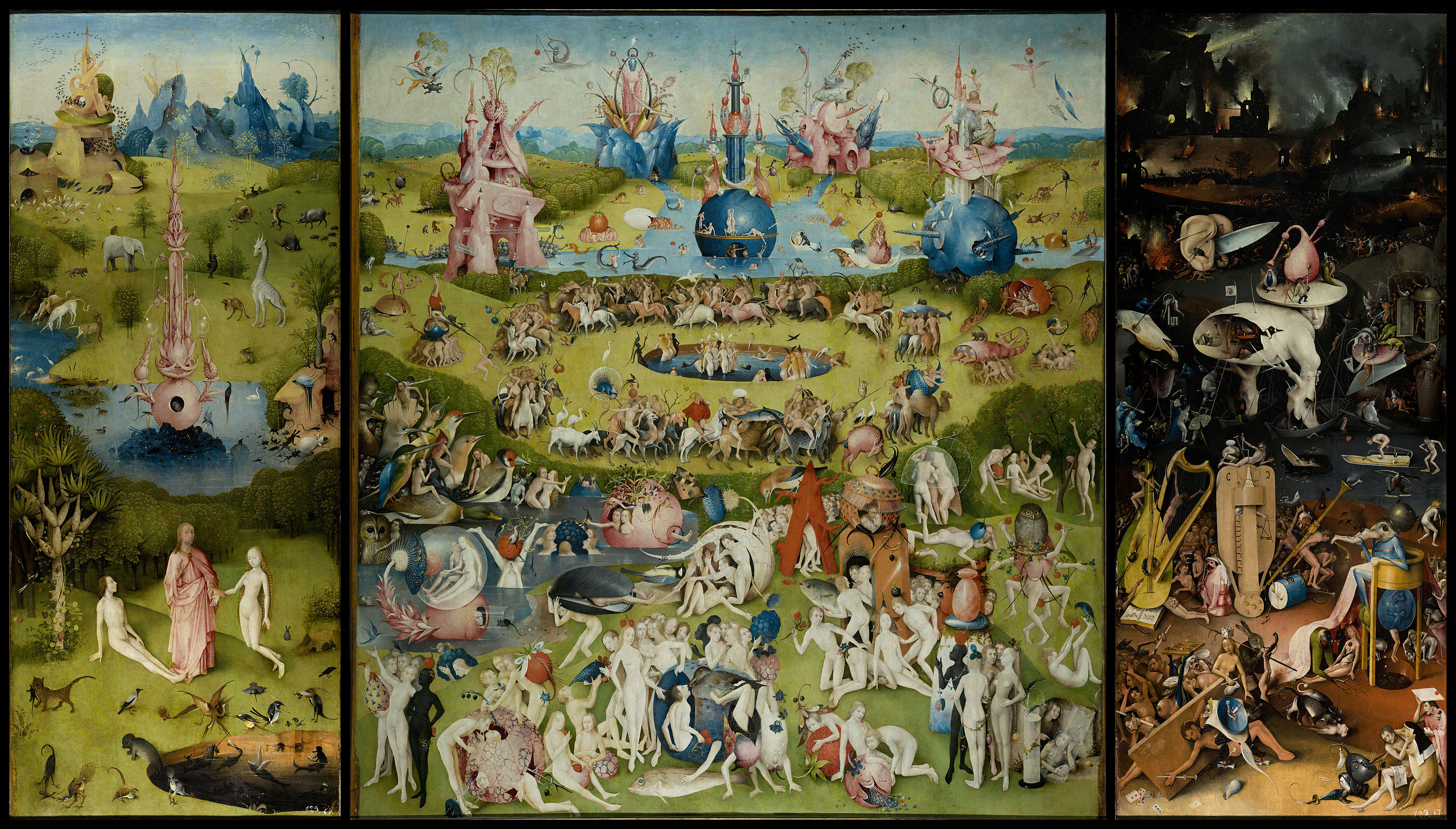
Hieronymus Bosch, Garden of Earthly Delights (1490-1510): outer wings closed; Museo del Prado, Madrid
LOGIC
- reading: Friend, clerkly culture (Roman de la Rose 48-49, 111-153)
TUESDAY
1. Discussion of blog questions & comments on week 4
2. Logos, “in the middle” of the medieval multiverse, being in time (and outside it, and in several times at once), and the logic (and the dialogic and analogical) of history/histories/stories
- Ducks
- October and the natural cycle of the year
- Being in time, the multiplicity of histories, being in multiple worlds simultaneously, and how worlds might overlap and interflow, and be in “dialectical dialogue / discourse / discussion” with one another (and/or “conversation” / “argument”)
- Being in a “middle ages”
- Being in a European Christian “middle ages” with respect to Christian “logos” and “logocentricity”
- The spiritual and temporal worlds
- Literary time, temporality, chronology (and chronicling, storytelling, and history/story); literariness and seeing the world literarily / poetically / analogically … and maybe medievally?
- Reading: Friend
> the jealous husband & the critique of marriage
> in the middle: the Golden Age and the Fall (128-30, 144-48) - corruption by wealth, power, authority, property > violence and hypocrisy; plus the vices of greed, avarice, lust, envy, wrath, hubris (= all the deadly sins except sloth…); and simony and venality (a second corruption, of the spiritual world by the temporal)
- The interactive Garden of Earthly Delights
- Images

(Attributed to but not by) Pieter Bruegel the Elder, The Fall of Icarus (1560s); Musées royaux des beaux-arts, Brussels
THURSDAY
1. Student Liberal Art group presentation: logic / dialectic
2. Close reading:
- misogyny (and misanthropy?), good women (inc. Heloise), women (and other non-men) as rational agents (or not)
- see also: Ovid, On Love; Andreas Capellanus, On Love; The Lamentations of Matheolus
- satire, verisimilitude, and literariness (Aristotle, Poetics; Eco, Name of the Rose): limits?
- reading:
the “logic” of alien worlds
the “logic” of a literary work’s world + its “grammar” = towards making sense of it and understanding it
the dialogic “logic” of asking questions of a text, discoursing with it - + your choice of passage from this week’s reading!
